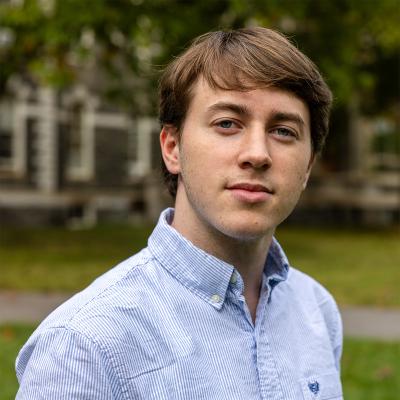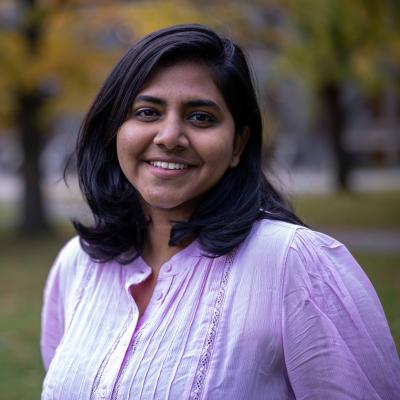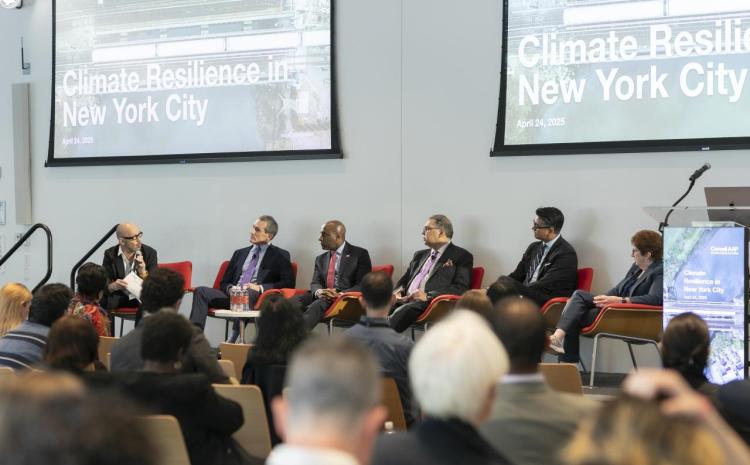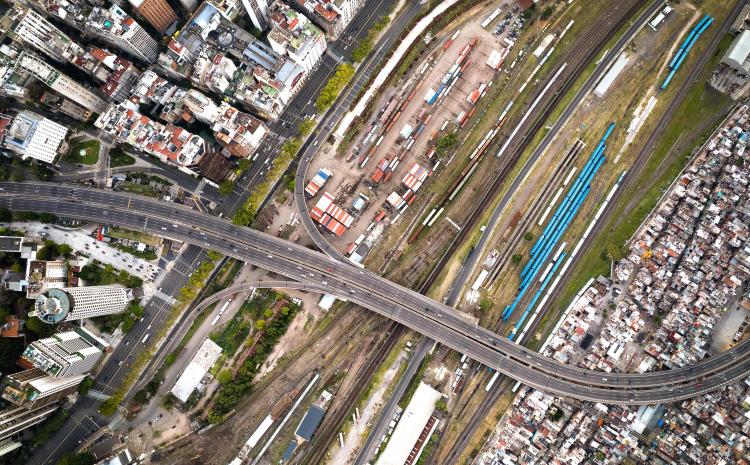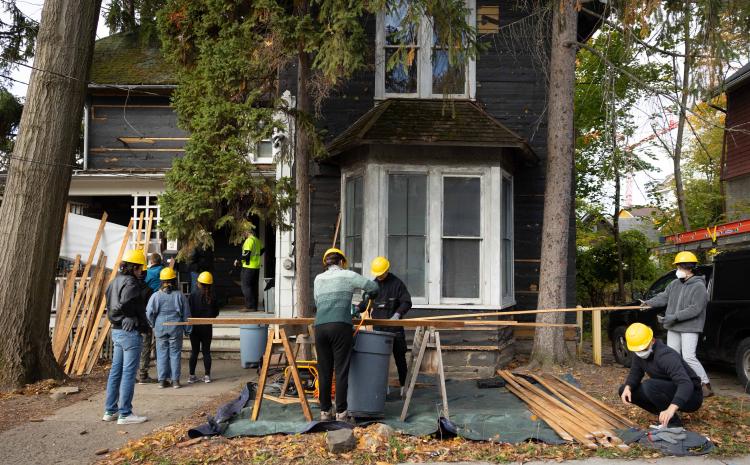Blogs
November 20, 2023
Cornell Students Support Informal Settlement Upgrading in Nairobi
Slum Dwellers International (SDI) is a strategic partner of the Cornell Mui Center for Cities (the center). For the past two years, the center has sent two AAP students to work as interns with SDI. In the summer of 2023, Cameron Howland, an undergraduate student in urban and regional studies, and Madhumitha Vasu, a master's student in city and regional planning, worked with SDI-Kenya for ten weeks. Cameron and Madhu have shared a couple of stories and key moments that give a sense of their experience working with SDI in Nairobi.
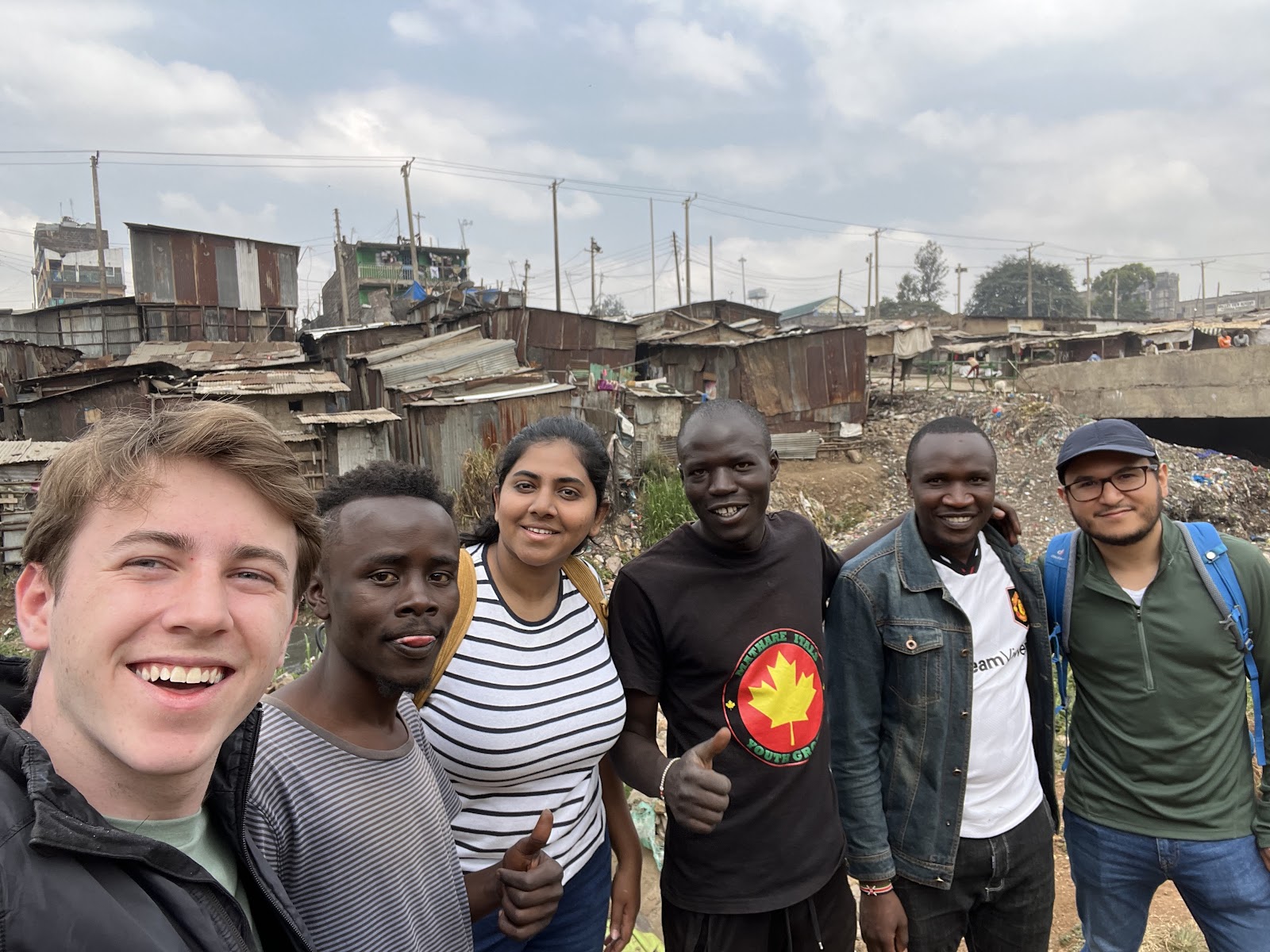
Cameron Howland (B.S. URS '26) (left), Madhumitha Vasu (M.R.P. '24) (center), and Carlos Lopez-Ortiz (Ph.D. CRP) (right) with members of a group creating a community park on a former solid waste site along the banks of the Mathare River.
photo / Cameron Howland (B.S. URS '26)
Mathare 4B Workshop, Thursday, July 29 — Cameron Howland
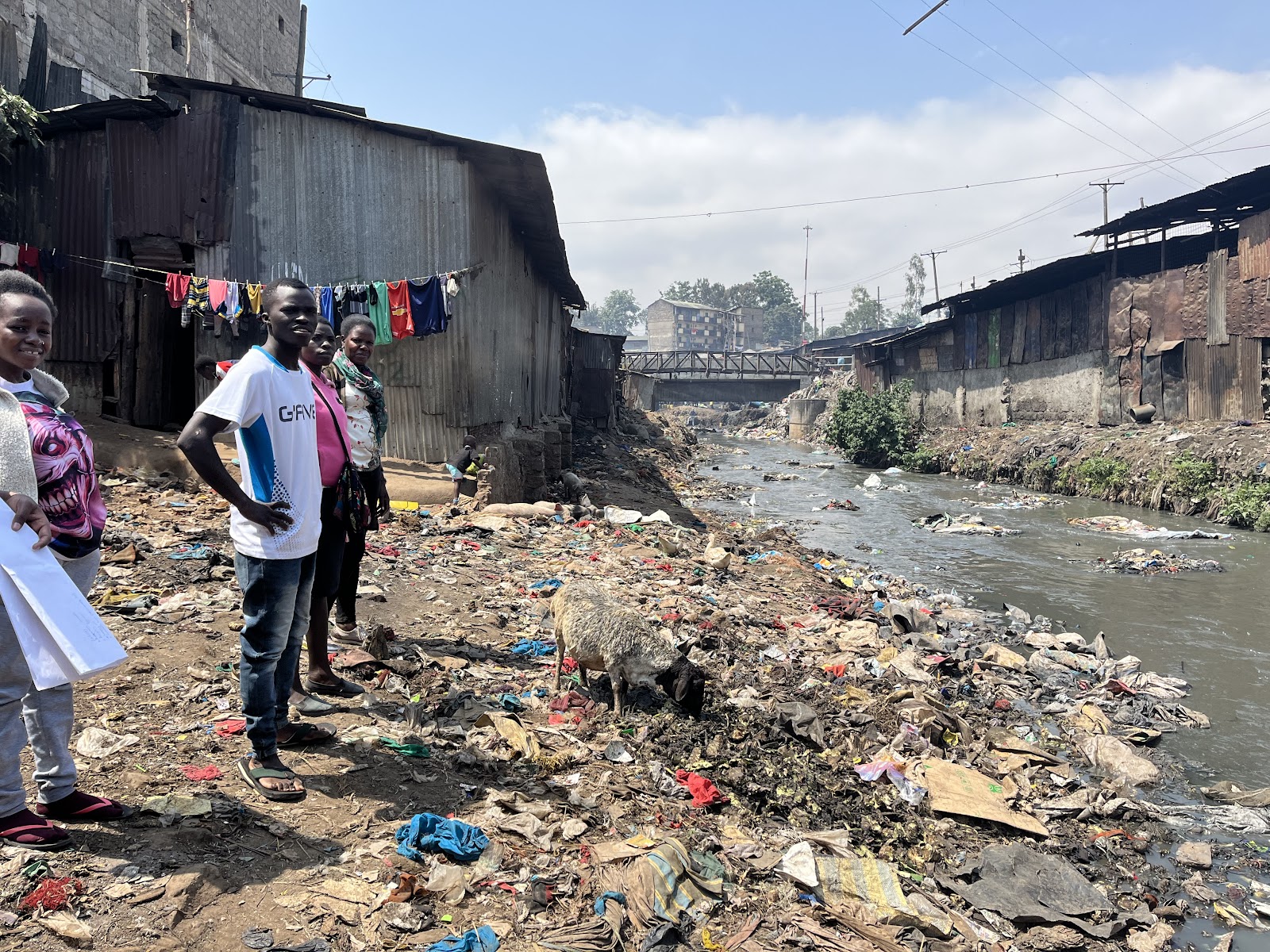
Mathare 4B youth on the Mathare River where they are planning a new community farm, toilets, and possibly a community center.
photo / Cameron Howland (B.S. URS '26)
As we prepared for work, we received a call from Micheal Wera, a Kenyan planner now working with SDI. “Can you be in Mathare 4B by 10?” Mathare 4B is a village in the informal settlement of Mathare, known for its dense tin shacks, constructed on a swath of public land at the intersection of two rivers: the Mathare and the Githaduru.
Mike and Allon, a visiting planner, were to run a community workshop that afternoon. Mike, Allon, and Jacob Omondi, a local activist, were organizing an initiative where community members would build models of their neighborhoods out of recycled materials and include any improvements within their design. They invited us to join them.
For us, it was an opportunity to learn more about the community and see how SDI conducts these sorts of visualization activities. Over the course of three days we walked through the settlement with youth, helped build models, and asked questions. In conversation with community members, as well as Jacob, Allon, and Mike, we realized just how immense the local knowledge of planning is, inspired by the ideas, compromises, and solutions we witnessed that week. Today we are still in a WhatsApp group chat with all who attended the workshop. Since then, several members of the workshop have formed a community group dedicated to realizing their illustrated vision, conducting engagements of their own, and advocating with local leadership.
Working with Solid Waste in Mathare — Madhumitha Vasu
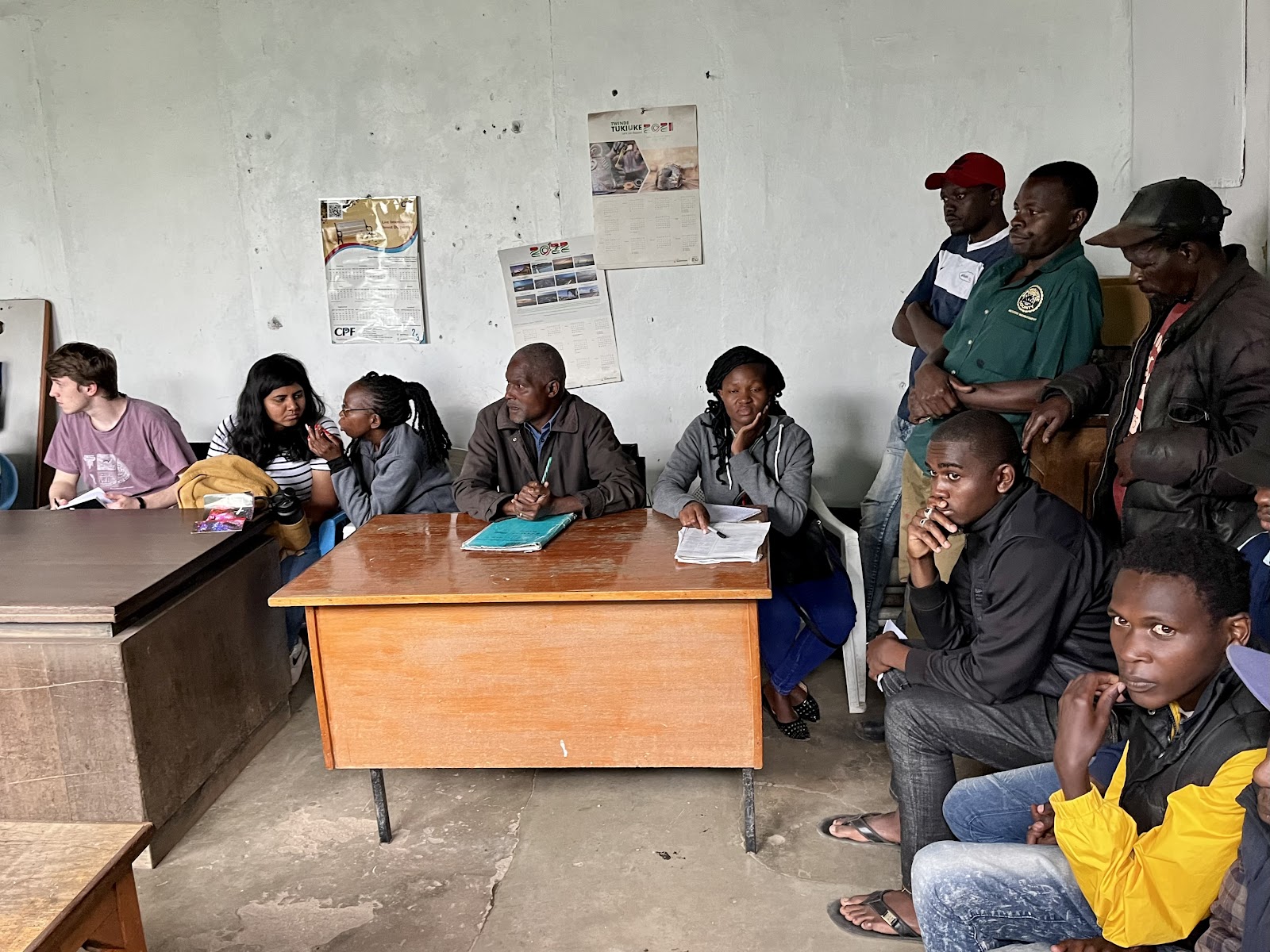
Cameron Howland (B.S. URS '26) and Madhumitha Vasu (M.R.P. '24) listen during a discussion between waste-picking groups in Kiamaiko Ward, in the Mathare Valley.
photo / Stanley Mburu
During our first month interning with SDI, we became well acquainted with the bi-weekly Monday meetings, where community leaders share updates and discuss new initiatives.
Waste management constantly emerged as a significant challenge faced by community groups. In Mathare, residents have limited access to essential services such as water, electricity, sewage systems, and solid waste management. Residents used the river for sewage and solid waste disposal needs, and also for washing. This sparked a discussion around the need for SDI to extend its technical support to address the challenge of managing urban waste.
After roughly a month of listening, we brought forward the need for a collective framework for community waste management that could provide a source of income for collection groups and have a positive impact on the environment. Through a series of community meetings, workshops, and discussions, we examined the informal economy of solid waste collection and gained a deeper understanding of the efforts made by community organizations. As part of this work, we developed and administered a survey of informal waste collectors. As is typical of how SDI works, local residents were recruited to carry out the data collection.
We were inspired by the ways in which the youth in the settlement discussed plans to expand their network, establish collective savings groups, and work towards a zero-waste community.
Our time as interns working with SDI was an intense, rewarding, and exhilarating experience. Besides working directly with communities, we attended national staff meetings, helped draft grant proposals, and organized city planning events with city officials and national leaders. We are incredibly grateful to SDI colleagues and the communities of Nairobi, who from the beginning welcomed us with a 'Habari' or 'Mambo.'



